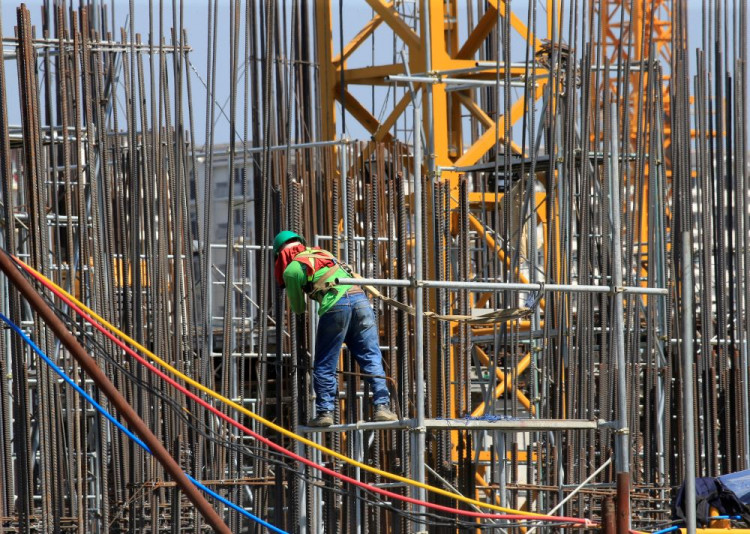Three emerging Asia economies reported data Tuesday showing their suffering economies were starting to recover from the effects of the worldwide coronavirus pandemic that has sent indicators down significantly in the past year.
Malaysia's gross domestic product showed a significant quarter-over-quarter clawback as did the Philippines. In Indonesia, a continued decline in retail sales was narrower than at this time in 2020 at the height of the pandemic.
Malaysia's economy contracted 0.5% year over year in its first quarter compared with a 3.4% decline in the fourth quarter of last year. It also beat market expectations of a 2.0% fall. The government attributed the better-than-expected results to "a reopening of more economic activities in the wake of (virus restrictions) and following massive various stimulus packages by the government and central bank to support the recovery," Malaysia's statistics department said Tuesday.
Household consumption was down 1.5% in the period compared with a 3.5% decline in the last period of last year. There was a big change in the reduction of fixed investment. It was down 3.3% year over year in the quarter compared with an 11.8% dip in the final three months of 2020.
"In addition, net external demand contributed positively to the gross domestic product as both exports and imports grew 11.9% and 13.0%, respectively. At the same time, government spending growth accelerated 5.9% compared with 2.4%. On the production side, output contracted less for mining and construction while agriculture rebounded 0.4% compared with a 1% decline and manufacturing sectors expanded faster - 6.6% compared with 3.0%," the statistics department said.
"Malaysia's economy rebounded...despite a partial lockdown midway through the quarter. But a resurgence in virus cases and the recent reimposition of containment measures mean that gross domestic product will probably stagnate this quarter," Capital Economics said.
The "outlook has deteriorated again recently, with a rebound in cases leading to the reimposition of restrictions. Prime Minister Muhyiddin Yassin said Monday a nationwide lockdown would start Tuesday and last until June 7. As such, private consumption is likely to remain in the doldrums this quarter," Capital Economics' Asia economist Alex Holmes said.
The Philippines economy shrank 4.2% year over year in its first quarter following an 8.3% decline in the previous quarter and compared with market expectations of a 3% fall, the National Statistics Office said Tuesday.
"This was the fifth straight quarter of contraction in the economy, but the least in the sequence, amid pandemic-induced lockdowns. Private consumption and fixed investment contracted less. Also, net external demand contributed negatively to gross domestic product as exports dropped by 3.0% on year while imports fell faster. Meanwhile, government spending growth accelerated - 16.1% compared with 5.1% in the previous quarter," the office said.
"The Philippines gross domestic product advanced 0.3% quarter on quarter in the first quarter - slowing markedly from a downwardly revised 3.8% growth in the fourth quarter. Still, this was the third straight quarter of expansion as the economy continued its battle against the COVID-19 pandemic," it said.
"A breakdown of the data shows that while the recovery was broad based, year-on-year growth remained deeply negative for most parts of the economy," Capital Economics said. "The contraction in private consumption eased marginally only, from minus 7.3% to minus 4.8%. Otherwise, government spending grew strongly, by 16.1% on year and the contraction in investment eased to minus 18.3%. On the external front, the contraction in imports eased much more than the fall in exports," Capital Economics' Holmes said.
"This quarter, lockdowns have been introduced across much of the country in response to a surge in infections. While the rise in new cases has started to level off, the situation remains dire," he said.
"Vaccination would be a game changer for the economy, allowing social distancing restrictions to be lifted and the resumption of tourist arrivals. But widespread inoculation doesn't look likely until at least next year. The Philippines has had a slow rollout so far - only two vaccines have been administered per hundred people - and the country faces many logistical challenges, not least running a vaccination program across its roughly 2,000 inhabited islands."
Retail sales in Indonesia fell 14.6% on year in March - but that was after an 18.1 dive a month earlier. "This was the 16th consecutive month of decline in retail trade, but the smallest pace since September, amid the massive COVID-19 vaccination program," Bank Indonesia said Tuesday.
On a monthly basis, retail sales jumped by 6.1% in March, the first monthly increase in three months, recovering sharply from a 2.7% drop in February, the bank said.






